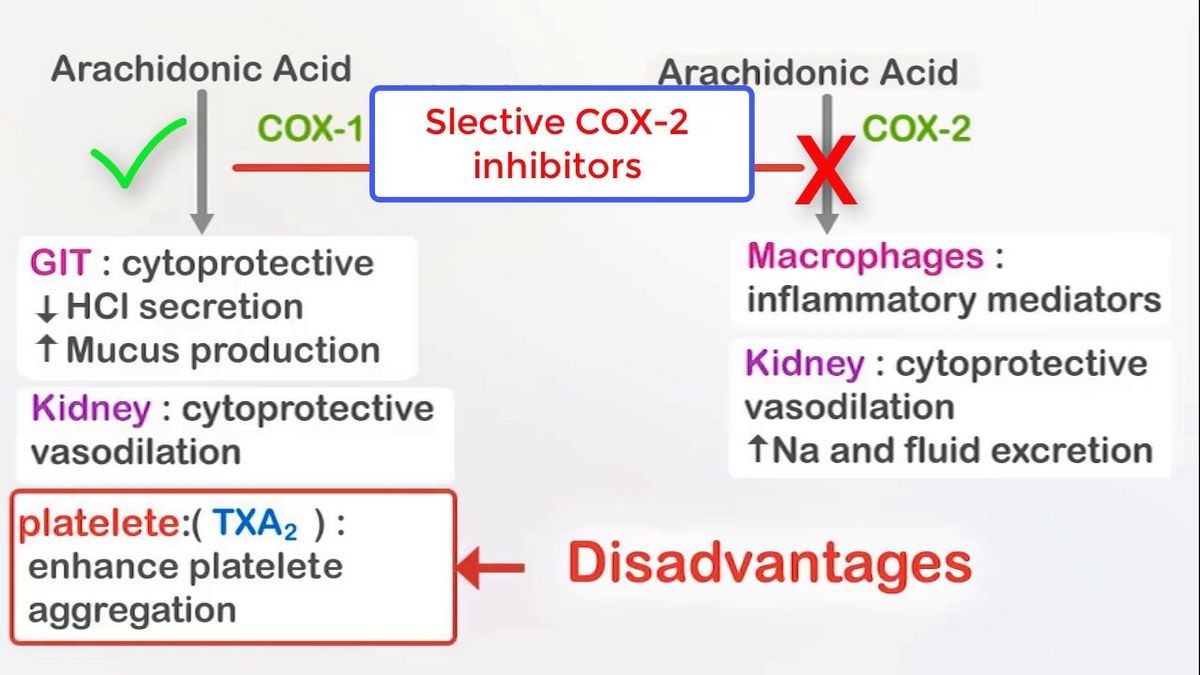
Contents
Aspirin vs. NSAIDs for Pain: Is Aspirin an NSAID?
Aspirin is a nonsteroidal anti-inflammatory drug (NSAID) that effectively treats fever, pain, and inflammation. It also has antithrombotic properties, preventing blood clots.
NSAIDs are used to treat pain and reduce inflammation from various causes such as headaches, injuries, arthritis, menstrual cramps, and muscle aches. They are also used as fever reducers.
NSAIDs block the enzyme cyclooxygenase (COX), which has two forms. COX-1 protects the stomach and kidneys, while COX-2 is produced during joint inflammation. Blocking both forms reduces inflammation, pain, and fever but can cause gastrointestinal side effects.
Uses for Aspirin vs. NSAIDs
Aspirin uses
Aspirin treats inflammation, fever, and pain resulting from forms of arthritis including rheumatoid arthritis, juvenile rheumatoid arthritis, systemic lupus erythematosus, ankylosing spondylitis, Reiter’s syndrome, osteoarthritis, and soft tissue injuries like tendinitis and bursitis. It is also used for rapid relief of mild to moderate pain and fever, and to reduce the risk of strokes and heart attacks in high-risk individuals.
NSAID uses
NSAIDs primarily treat inflammation, mild to moderate pain, fever, headaches, arthritis, ankylosing spondylitis, sports injuries, menstrual cramps, and familial adenomatous polyposis (FAP) to prevent colon polyps. They are also included in many cold and allergy preparations.
Side effects of Aspirin vs. NSAIDs
Side effects of Aspirin
Aspirin has few side effects when used at the lowest effective dose. Common gastrointestinal side effects include ulcerations, abdominal burning, pain, cramping, nausea, gastritis, gastrointestinal bleeding, and liver toxicity. Ringing in the ears can occur, and the daily dose should be reduced if it happens. Other side effects include aggravation of peptic ulcer disease, asthma, increased blood uric acid levels, risk of Reye’s Syndrome in children, and interaction with diabetes medications.
Side effects of NSAIDs
NSAIDs have various side effects including kidney and liver failure, ulcers, prolonged bleeding, fluid retention, allergic reactions, increased hypertension, negative interaction with blood thinners, reduced blood clotting, elevated blood pressure, negative interaction with cyclosporine, and increased risk of stomach ulcers for heavy alcohol consumers.
Drug interactions for Aspirin vs. NSAIDs
Aspirin drug interactions
Aspirin may interact with lithium, blood pressure medications, methotrexate, aminoglycoside antibiotics, oral blood thinners, and other drugs.
NSAID drug interactions
NSAIDs may interact with diuretics, lithium, methotrexate, cyclosporine, warfarin, and other drugs.
Differences between NSAIDs
NSAIDs vary in potency, duration of action, elimination from the body, inhibition of COX-1 and COX-2, tendency to cause ulcers and bleeding, and their effectiveness in treating pain. Celecoxib (Celebrex) is a selective COX-2 inhibitor with fewer bleeding and ulcer risks. Aspirin is unique as it inhibits blood clotting for a prolonged period, making it ideal for preventing heart attacks and strokes. Ketorolac (Toradol) is a potent NSAID used for short-term treatment of severe pain, but it causes ulcers more frequently than other NSAIDs and should not be used for more than five days.
Summary
Aspirin and NSAIDs are drugs used to treat pain, inflammation, and fever. They have similar side effects and drug interactions, such as gastrointestinal issues, kidney and liver failure, bleeding risks, and allergic reactions. Aspirin has additional benefits in preventing blood clots. It’s important to review the side effects and drug interactions before taking these drugs.
REFERENCE: FDA. Medication Guide for Non-Steroidal Anti-Inflammatory Drugs (NSAIDs).


